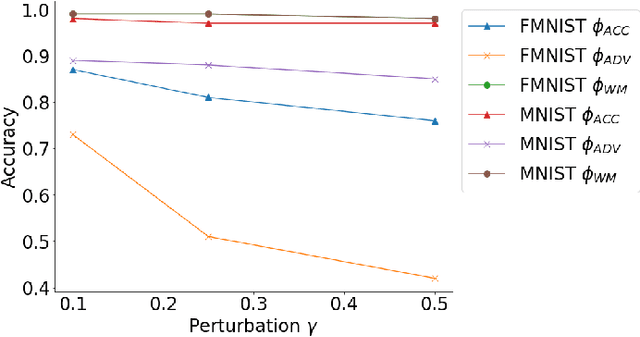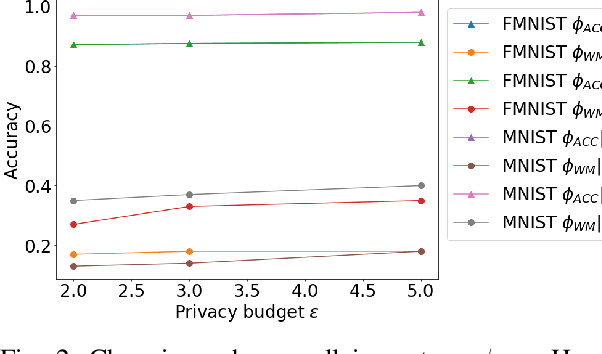Conflicting Interactions Among Protections Mechanisms for Machine Learning Models
Paper and Code
Jul 05, 2022



Nowadays, systems based on machine learning (ML) are widely used in different domains. Given their popularity, ML models have become targets for various attacks. As a result, research at the intersection of security and privacy, and ML has flourished. The research community has been exploring the attack vectors and potential mitigations separately. However, practitioners will likely need to deploy defences against several threats simultaneously. A solution that is optimal for a specific concern may interact negatively with solutions intended to address other concerns. In this work, we explore the potential for conflicting interactions between different solutions that enhance the security/privacy of ML-base systems. We focus on model and data ownership; exploring how ownership verification techniques interact with other ML security/privacy techniques like differentially private training, and robustness against model evasion. We provide a framework, and conduct systematic analysis of pairwise interactions. We show that many pairs are incompatible. Where possible, we provide relaxations to the hyperparameters or the techniques themselves that allow for the simultaneous deployment. Lastly, we discuss the implications and provide guidelines for future work.
 Add to Chrome
Add to Chrome Add to Firefox
Add to Firefox Add to Edge
Add to Edge